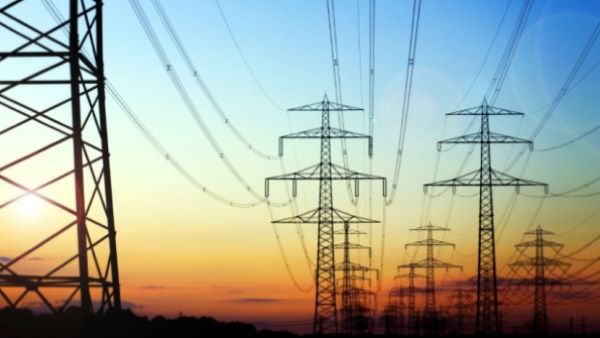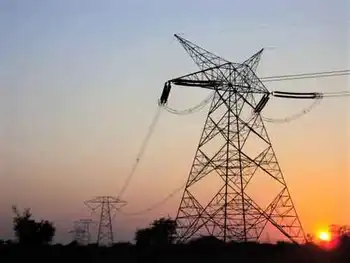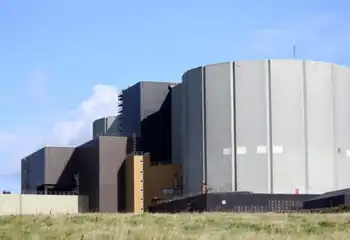Energy audits stimulate bottom line
President Obama would like to implement a cap-and-trade plan that includes cutting greenhouse gas emissions 83 percent below 2005 levels by 2050. Experts agree that this would result in significantly higher energy costs that will extend well into the future.
While higher utility bills may be a bane to your customers, they can definitely be a boon to your business — especially if you offer residential energy audits. These comprehensive home evaluation programs involve specially trained auditors assessing how much energy a home uses and offering suggestions for ways to improve efficiency.
Not surprisingly, utilities across the country are offering energy audit opportunities to their customers, and many have partnered with Environmental Protection AgencyÂ’s (EPAÂ’s) Energy Star, which provides guidance on how to evaluate new and existing homes for energy losses.
Energy audits offer contractors a golden opportunity to provide a beneficial service to customers, with the guarantee of not only being paid for the audit, but of securing more sales in the future (e.g., duct sealing, insulation, equipment replacement). Contractors should be forewarned, however, that it takes a serious investment in training and specialized tools before itÂ’s possible to take on the mantle of home energy auditor.
Indeed, most utilities and other state agencies require their partner contractors to undergo a substantial amount of training and testing before those contractors will be recommended to customers for energy auditing services.
The good news is, most contractors who have gone through the training and invested in the necessary tools say the outlay of time and money is definitely worth it.
Hal Smith, president, Halco Plumbing and Heating, Phelps, N.Y., first started offering home energy audits about three years ago. As a partner contractor with New York State Energy Research and Development Authority (NYSERDA), he had to obtain extensive training through the Building Performance Institute (BPI) before he could offer energy-auditing services.
“Our people started with a six-day building analyst training course, followed by a test. Then there was a six-day course on building envelopes, followed by written and in-the-field testing,” said Smith. “Then there was a heating specialist course, cooling course, heat pump course, and mobile home specialist course. All followed by testing.”
And the training doesnÂ’t stop there. Continuing education is necessary, said Smith, and the next step for his auditors is to become certified raters for the HERS (Home Energy Rating Service) program. HeÂ’s also taking an out-of-the-box approach by sending some of his auditors to a two-week course to become certified home inspectors.
“Our angle there is if we can get in front of a home buyer while they’re purchasing a home, we can test the HVAC system and show them options that could reduce their utility bills,” said Smith. “They’re arranging financing at that point, so why not roll those improvements into the mortgage.”
Matthew Holtkamp, president, Holtkamp Heating & A/C Inc., Buford, Ga., started performing energy audits in March of 2003 after initially obtaining training through Comfort Institute, Bellingham, Wash. As a preferred partner with Georgia Power, he was required to take more training classes through Southface Institute and BPI.
“I require all my sales staff to be trained,” said Holtkamp. “All technicians and installers go through a week-long class, so they understand what to do, and it also adds to our company culture. When everyone at the company knows the level you’ll go to in order to provide customers with top-notch work, it shines through in many different ways.”
All that training has definitely paid off, as Holtkamp noted that energy audits have helped the business tremendously. “Our personnel are no longer stumped by building science issues, and when doing a blower door test during an estimate for a new HVAC system, we always come out as the expert, because no one else does that. If we do lose the job, pity the company that gets it, because the customer now knows what to expect.”
Smith agrees with the sentiment, noting that a blower door test is a minimum requirement before he’ll even take on a job. “That really separates out the customers who are just looking for a quick price. We never get those jobs anyway.”
Bob Brice, Energy Stewards International (ESI), Des Moines, Iowa, offers training courses through National Comfort Institute (NCI), and he agrees that energy auditing and performance-based contracting can be beneficial for contractors.
“There’s an unbelievable amount of work available to the contractor, if they want to get involved. Right now, the average heating and cooling system delivers 57 percent of its capacity, and that’s an average of new and old systems. The reason for that is everyone has been focused on equipment efficiency, and we’ve thrown out everything else associated with making a system actually work. Essentially HVAC contractors have allowed themselves to be turned into a commodity industry.”
Investing in training is the first step Brice suggests to those contractors looking to become involved in the area of analyzing and improving energy use in the home.
“Most institutions do not train technicians on how to analyze installed system efficiency in the field. Much of the training available is sponsored by manufacturers, so it is primarily focused on the actual equipment. The training we recommend focuses on the entire system, including the duct system, installed efficiency, size, insulation, combustion efficiency, and proper airflow. Proper airflow is still the most misunderstood concept in the general HVAC community right now.”
In addition to extensive training, special tools are needed to perform comprehensive energy audits. Smith said that the “must haves” include a blower door, smoke stick, and Duct Blaster, as well as more commonly used tools such as combustion analyzers, electronic gas/leak detectors, carbon monoxide testers, and electronic temperature/wet bulb probes.
“After you get started, you will want to graduate to the next step and buy a thermal imaging camera and more expensive tools,” said Smith. “The camera is a great investment, but it’s not really necessary to get started with the program. You won’t be in it for very long, though, before you’re going to want to get one.”
All these tools are needed, because conducting whole house energy audits requires a lot of different testing. Holtkamp follows the guidelines offered by Energy Star’s “Home Performance with Energy Star” protocol, which includes inspecting the heating and cooling equipment, duct systems, appliances, attics/basements/crawlspaces, and running diagnostic tests to check the home’s envelope and duct leakage.
Holtkamp estimates his company performs 16 energy audits a month and that the audits and resulting home performance work account for about 25 percent of his annual sales. “The audits take about three hours to perform, and we charge $400 for the first HVAC system and $150 for the second.”
Smith offers several different levels of energy auditing services, starting with a free home energy visit. During that visit, a comfort advisor takes a quick look at the home and performs a preliminary blower test to determine whether a more comprehensive audit should be recommended. If so, the customer can choose from a one-half day audit for $350 or a more comprehensive full-day audit for $750. Oftentimes, NYSERDA underwrites all or some of the cost of the audit, and Smith deducts the cost from any additional work he is contracted to perform.
“We perform about 30 audits a month, and probably more than half of those are full-day, comprehensive audits,” said Smith. “Once we get to the point where we’re performing the audit, we have better than a 75 percent closing rate on additional work. The audits are definitely becoming a larger part of our business.”
While contractors can certainly benefit from offering energy audits, customers also reap the rewards. Dave Thompson, residential account representative, Austin Utilities, Austin, Minn., noted that in the several years since the utility started urging its 12,000 customers to partake in its energy auditing program, participating homeowners have saved 379 kW, 576,358 kWh, 1,575,950 gallons of water, and 50,872 CCF of gas. The utility also offers rebates for energy-efficient improvements, and in 2008, Thompson noted they paid over $127,599 to those taking advantage of the utilityÂ’s Conserve and Save Rebate program.
“Offering energy audits is ideal for HVAC contractors,” said Thompson, who added the utility uses a third-party auditor to conduct their energy audits. “It goes hand-in-hand with their business, because heating and cooling provide some of the biggest savings opportunities out there. On the utility side, we see results every time someone takes advantage of the program.”
Smith is glad he jumped into the energy auditing business, noting that it has increased sales while ultimately benefiting his customers. “It has required a huge investment in training and tools on our part, but what’s great about our business is that these services ultimately help our customers long-term. It’s a worthwhile investment and certainly the best thing for the customer.”
Related News

Failed PG&E power line blamed for Drum fire off Hwy 246 last June
LOS ANGELES - A downed Pacific Gas and Electric Co. power line was the cause of the Drum fire that broke out June 14 on Drum Canyon Road northwest of Buellton, the Santa Barbara County Fire Department announced Thursday.
The fire broke out about 12:50 p.m. north of Highway 246 and burned about 696 acres of wildland before firefighters brought it under control, although no structures were damaged, according to an incident summary.
A team of investigators pinpointed the official cause as a power line that failed between two utility poles and fell to the ground, where arcing electricity ignited the surrounding…





